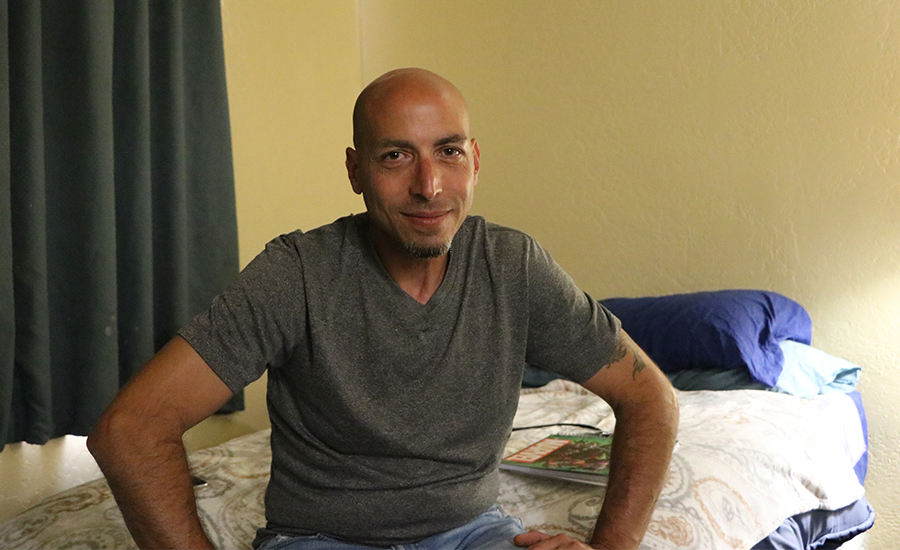DES: Lifting Up Those Who’ve Served

Just a few short months ago, Marc Goldman and his daughter, Alexandria, were living on the streets of Phoenix. Fifteen years with the Army and four tours through the Middle East left a significant impression on Marc’s psychological state. “I had some PTSD issues, and it turns out I’m bipolar,” said Goldman. “Things just crept up on me. I never got VA services because I didn’t want them. I didn’t want to take it away from people who really needed it. But I really needed help, and I wasn’t willing to ask for it. I was forced into the position to take help. I wound up losing our place, wound up on the street, and I lost my job.”
Goldman found himself in a position he had never been in before. He worked all his life, from the military, to construction work; he even played a role in the establishment of a cabinetry company. “I don’t like asking for help. It’s an Army thing—fix it, fix it, fix it,” he said. But ending up on the streets with his daughter changed his perspective. He went to the NATIVE HEALTH office in Phoenix where he met DES caseworker, Veronica Townsend.
When Goldman met Townsend, he was simply looking for the general assistance DES provides—cash, nutrition and medical. But Townsend determined that a grant diversion would be more appropriate for his situation, in addition to the nutrition and medical assistance. A grant diversion allowed Goldman to receive cash benefits as a lump sum, rather than a month-to-month allocation. With this opportunity, he was able to place his daughter into housing, while he remained on the street.
“It would’ve been the worst thing in the world to have my daughter stay with me in the park,” Goldman said. “Being ex-military, I didn’t mind having to sleep in the park. I had to do what I had to do. I would just stay close to where my daughter’s school was. I would get up every day and see her before school, walk with her to catch the bus. I would be there in the afternoon when she was done. This is going to sound weird, but me and my daughter bonded and were so much closer than we were before this whole situation. I really can’t thank Veronica enough.”
The temporary housing for his daughter gave Goldman the time to focus, and the two of them were able to get into the shelter at UMOM New Day Centers. Goldman is currently working with the VA to receive disability insurance, while also seeking treatment to improve his mental health.
“I want to get back to work, but I know that I’ll just end up right where I am in a few months or a few years. I need to take some time to sort all of this out, and get myself healthy again. My daughter is my bedrock. She’s been so solid this whole time. She’s my hero.”
Without the support of DES and NATIVE HEALTH, Goldman isn’t sure whether he would be able to get himself back on track. “You know everyone in that [NATIVE HEALTH] building has your back and has your best interest at heart,” Goldman reflects. “I really think Veronica should be supervising and teaching other people how to provide services like this.”
Townsend, however, isn’t inclined to move on from her current role, where she meets with clients one-on-one. Townsend came to DES after 28 years in the retail industry, bringing with her a philosophy of customer service that places the client at the forefront. Although she enjoyed her time as a regional manager, she came to DES looking for a stronger human connection and the ability to provide a customer service experience that not only pleases the customer, but transforms their life. “You’re helping people,” she explained. “I liked the community service aspect of helping women [at domestic violence shelters] and I feel fulfilled from this job.”
Her exemplary customer service within a local DES office, and the passion exhibited in her volunteer work with domestic violence shelters, led Townsend’s supervisor to encourage her to serve clients at NATIVE HEALTH through the “DES on the Spot” program. She likes the opportunity to listen to clients, hear their stories and help them find solutions to their situations.
“To Marc, it meant a lot to sit down with someone and have a nice conversation,” she said. “You have to be in the position I’m in to really understand what this experience means.”
By Brett Bezio

